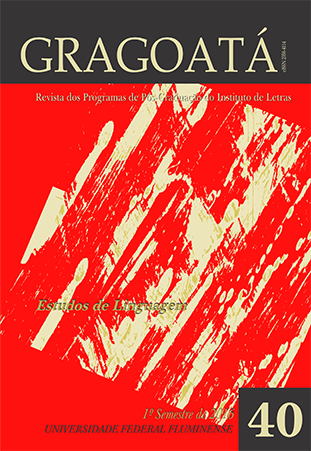THE REPRESENTATION OF SOCIAL ACTORS IN ELECTRONIC POSTS: WHAT CHARACTERS INHABIT BRAZILIANS´ POLITICAL IMAGINARY TODAY?
DOI:
https://doi.org/10.22409/gragoata.v21i40.33391Keywords:
the representation of social actors, electronic posts, polemical discourse, social imaginaryAbstract
The study examines Brazilians´ political imaginary after election of president Dilma Roussef, through the investigation of the representation of social actors in electronic posts, published in one particular news site. Laclau & Mouffe´s argument for the discursive nature of the social and of collective identities (1985) is drawn upon, as well as the concepts of polemical discourse (AMOSSY, 2011), ideology (EAGLETON, 1991; PEDRO, 1997) and social imaginary (FAIRCLOUGH, 2015; CASTORIADIS, 1982). On the basis of van Leeuwen´s (1996) theoretical framework for the study of the representation of social actors in discourse, the study identifies three types of social actors in the corpus; suggests some correlations between positioning and strategies of discursive representation of social actors; as well as introduces some considerations about the heterogeneous and dynamic nature of the social imaginary.Downloads
Downloads
Published
How to Cite
Issue
Section
License
Authors who publish in Gragoatá agree to the following terms:
The authors retain the rights and give the journal the right to the first publication, simultaneously subject to a Creative Commons license CC-BY-NC 4.0, which allows sharing by third parties with due mention to the author and the first publication by Gragoatá.
Authors may enter into additional and separate contractual arrangements for the non-exclusive distribution of the published version of the work (for example, posting it in an institutional repository or publishing it in a book), with recognition of its initial publication in Gragoatá.

Gragoatá is licensed under a Creative Commons - Attribution-NonCommercial 4.0 International.











